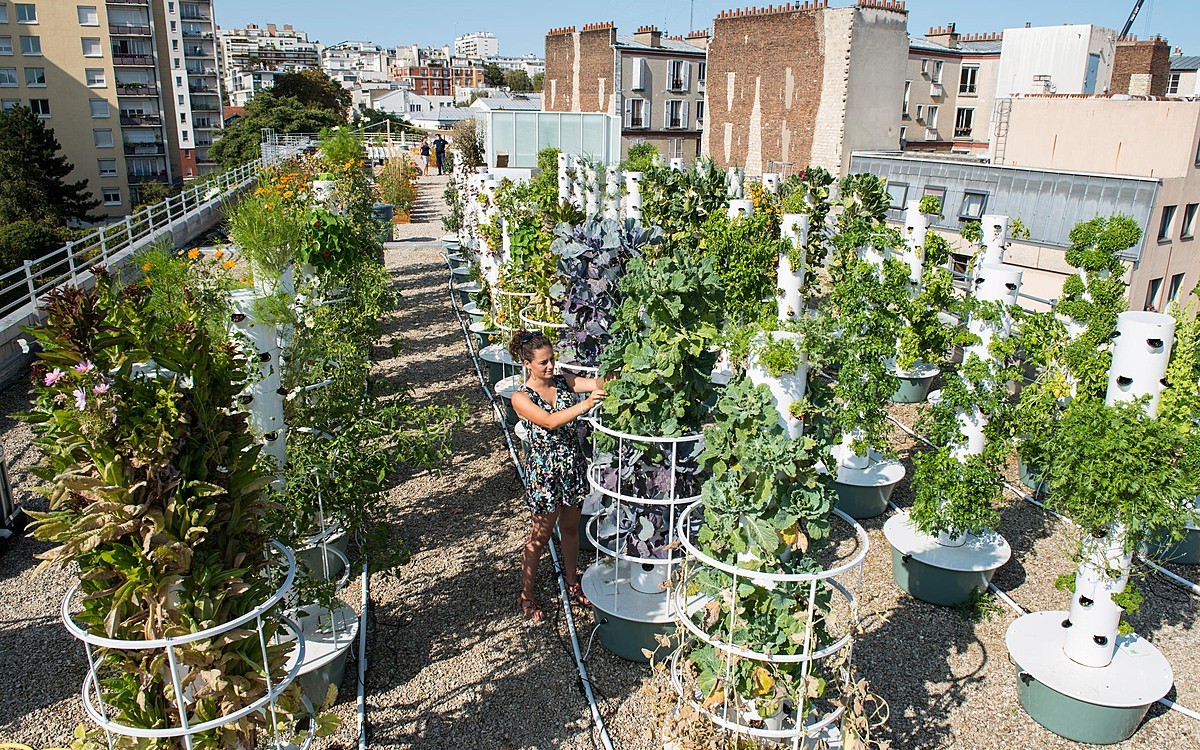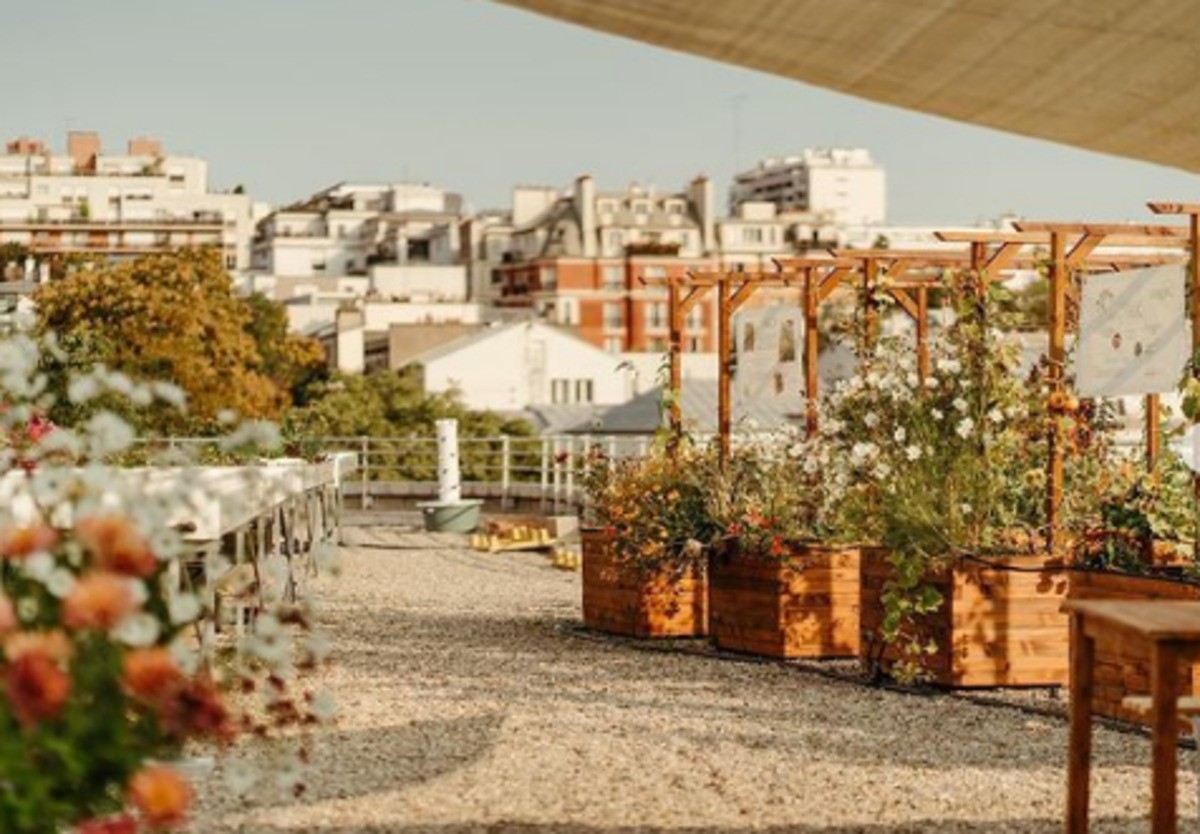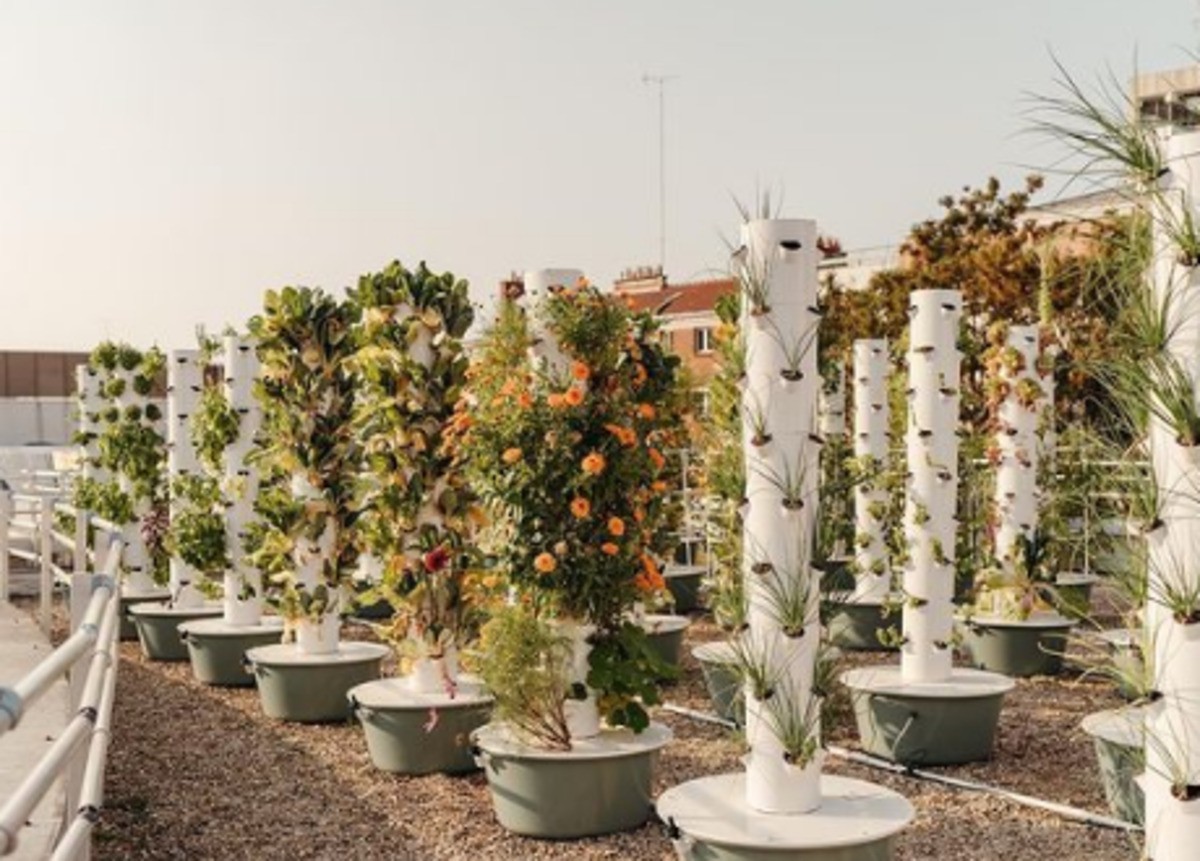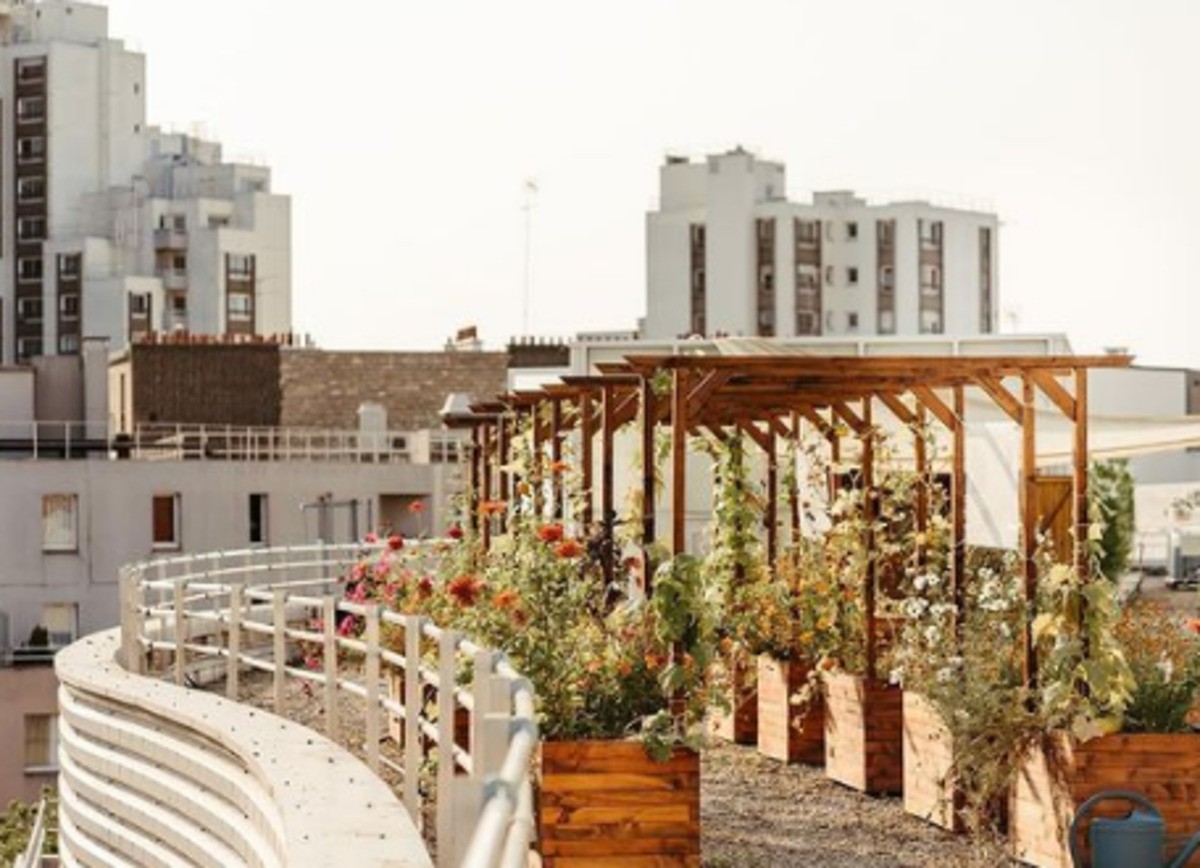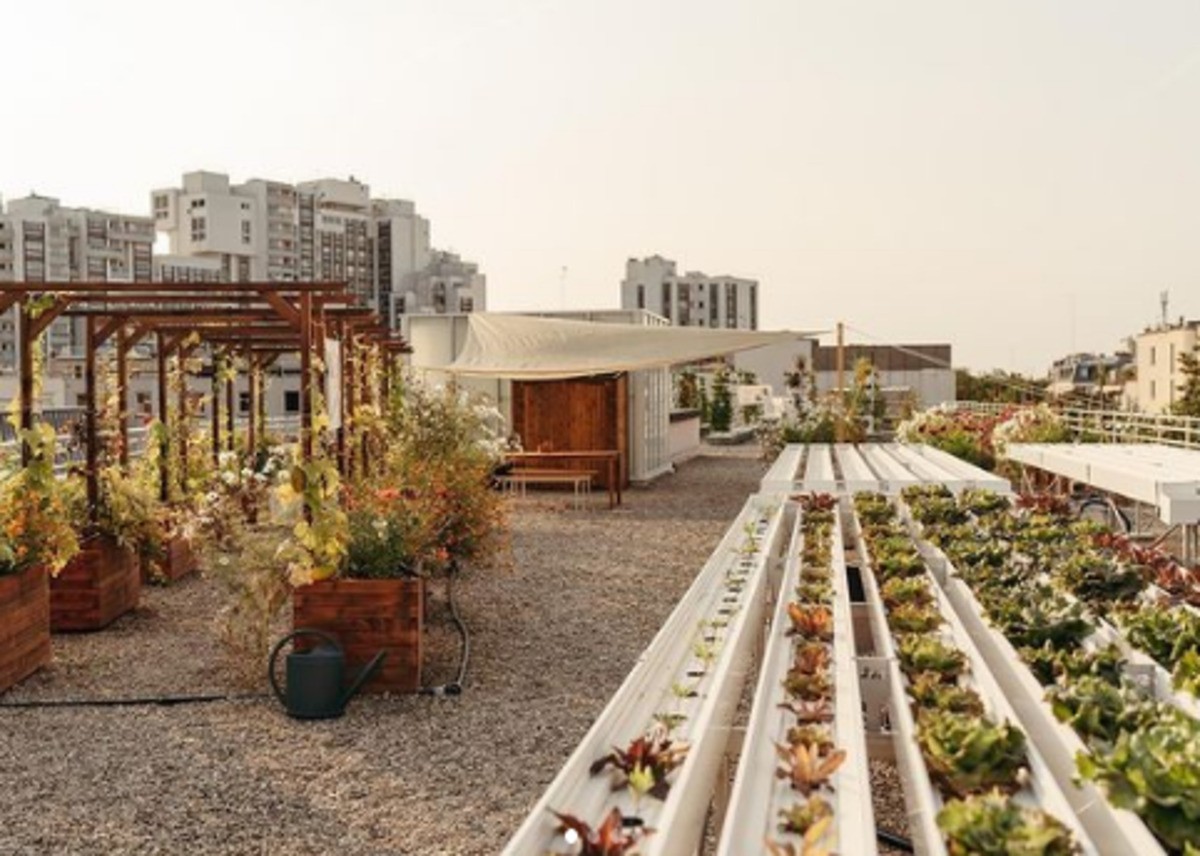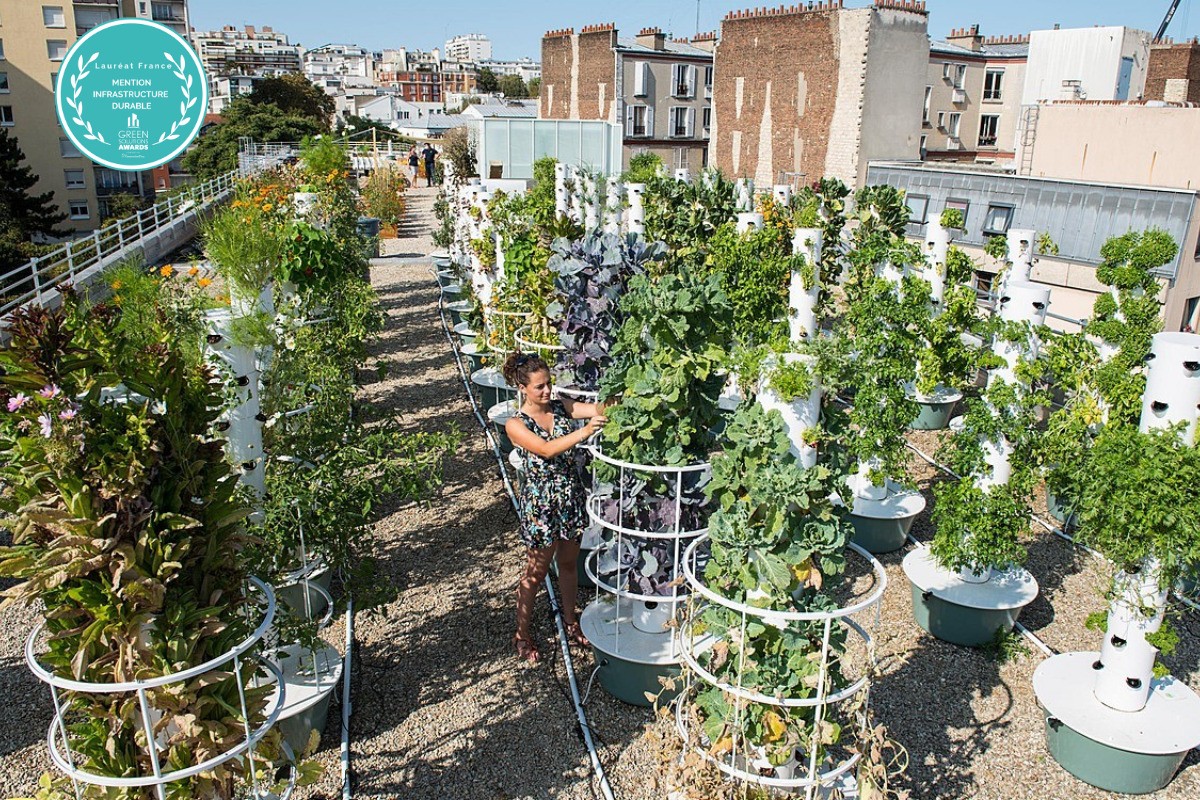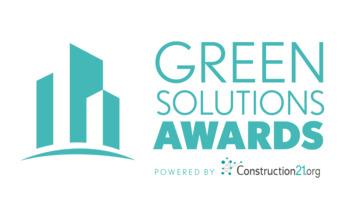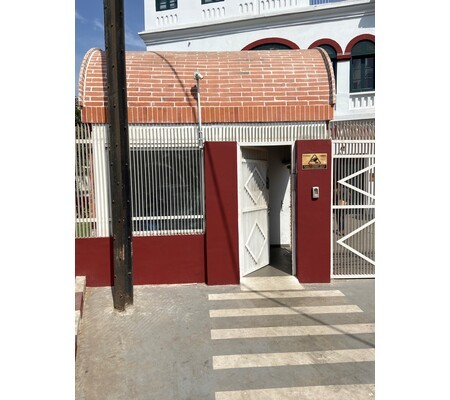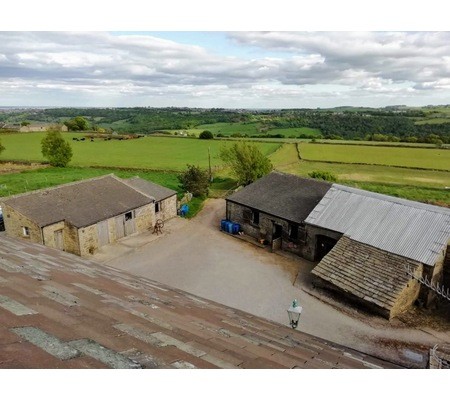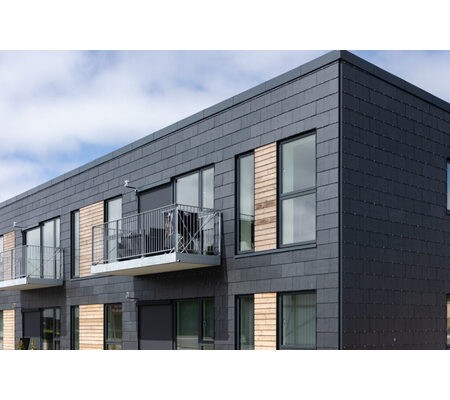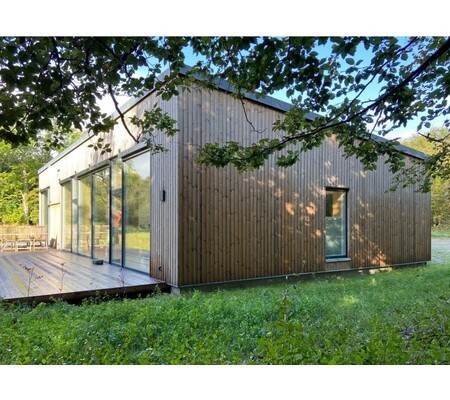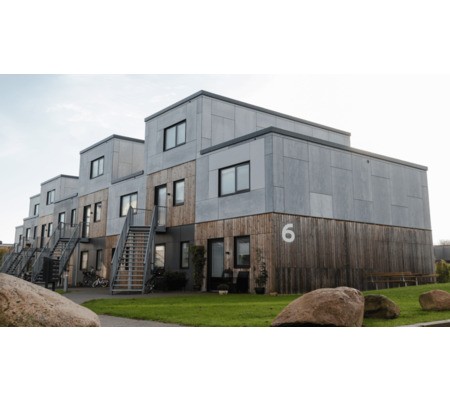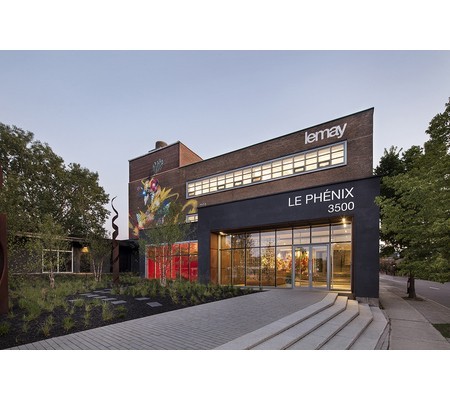Urban Farm of the Vegetal Arch
Last modified by the author on 15/03/2021 - 09:47
- Year of commitment : 2019
- Address 1 - street : 3/6 rue Albert Marquet 75020 PARIS, France
- Diameter : 1000
- CO2 Impact : The project avoids 12 tonnes of CO2 emissions each year.
-
130 000 €
- Builder
Urban Picking, Urban Leaf - Manager / Dealer
Urban picking
This project received a mention for the Sustainable Infrastructure Grand Prize of the Green Solutions Awards 2020-21 at both the national and international levels.
This multi-technical urban vegetable farm (Aquaponics, vertical aeroponics, permaculture) with a surface area of 1000m2 is located on the roof of the cooking schools of starred chef Thierry Marx and it allows them to provide them with healthy and local fruits and vegetables without any associated pollution. the transport, storage or packaging of foodstuffs.
This place also brings positive externalities to the neighborhood since we organize weekly visits and trainings on urban agriculture. It is a source of biodiversity and an island of freshness in one of the densest districts of the Parisian agglomeration.
Progress Status
Delivered
Data Reliability
Assessor
Funding Type
Public/Private Partnership
Website Enterprise / Infrastructure
https://www.paris.fr/pages/l-arche-vegetale-de-la-ferme-urbaine-aux-assiettes-de-thierry-marx-11846https://www.parishabitat.fr/Pages/arche-vegetale-inauguration-200925.aspx
https://www.agri-city.info/fr/grand-angle/territoires/l-arche-vegetale-du-toit-aux-cuisines-de-thierry-marx
Sustainable Development
Testimony / Feedback
The cooking school manual, Paris Habitat and the mayor of the 20th arrondissement of Paris are delighted with the establishment of this infrastructure which marks their commitments in terms of sustainable development, ecology driven by a desire to eat better.
Governance
Urban Picking, Cooking Instructions, Urban Leaf
Consortium of companies
Urban Picking, Urban Leaf
Other
Urban picking
Private
The company Cueillette Urbaine takes care of the operation of the infrastructure throughout the year and has an occupancy lease for a period of 9 years with Paris Habitat which owns the building.
The infrastructure was financed by a grant from the Ile-de-France region as well as by the cooking school.
The cooking school benefits from preferential rates on harvests throughout the year. Some products are processed (herbal teas, sauces, spreads, juices, etc.) to be sold in short circuits. The site also supplies an organic grocery store located around the corner which constitutes a large part of the farm's income.
Then, the visits and the workshops make it possible to generate additional income.
The site's turnover is around 35k € / year.
Sustainable Solutions
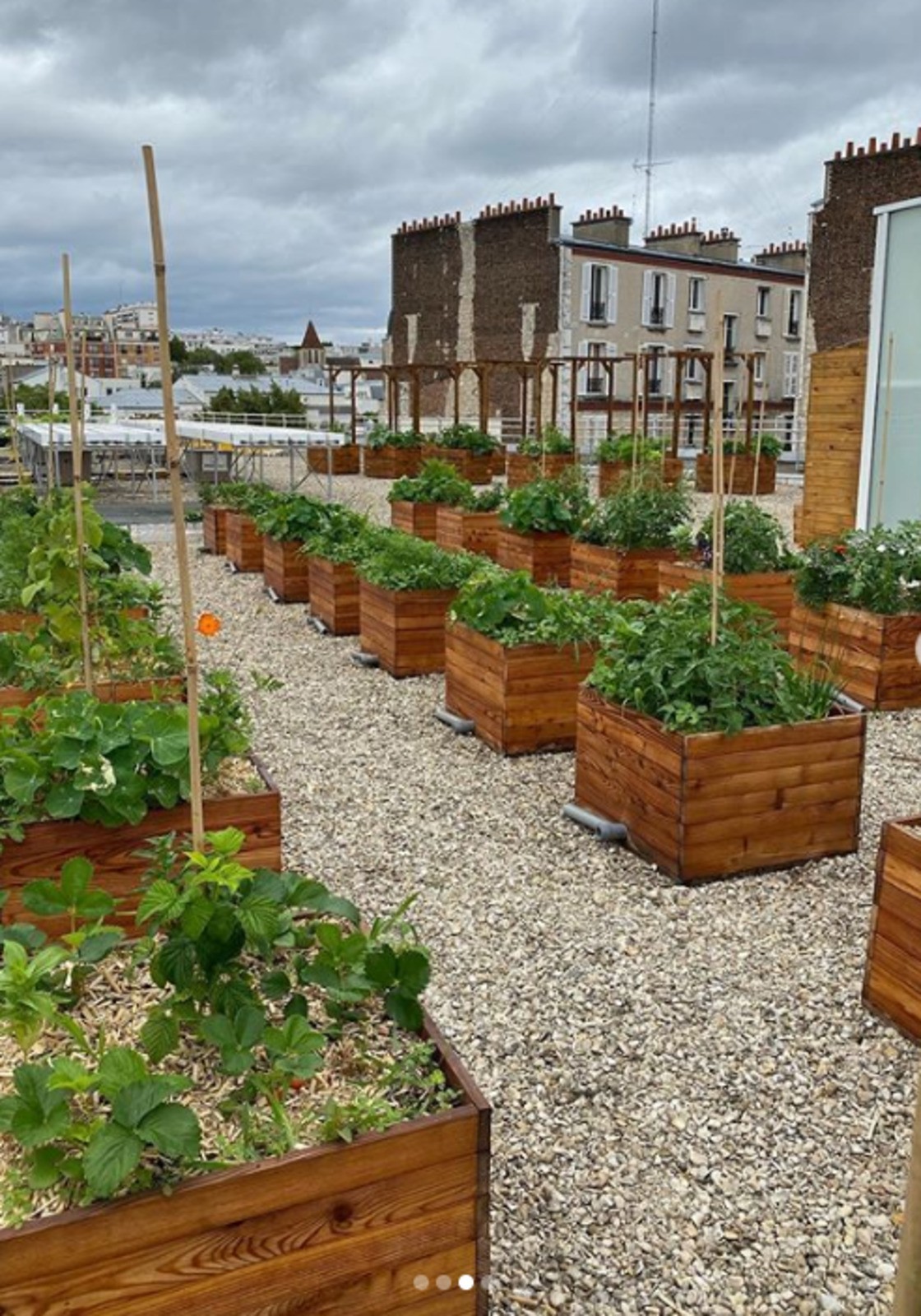
Urban Plant Arch Farm
Multitechnical urban farm (Aeroponics, Aquaponics, Permaculture) of 1000m2 on the roof of a building belonging to Paris Habitat and supplying Thierry Marx's schools with fresh and local foodstuffs.
12 000,00
Photo credit
Urban picking




